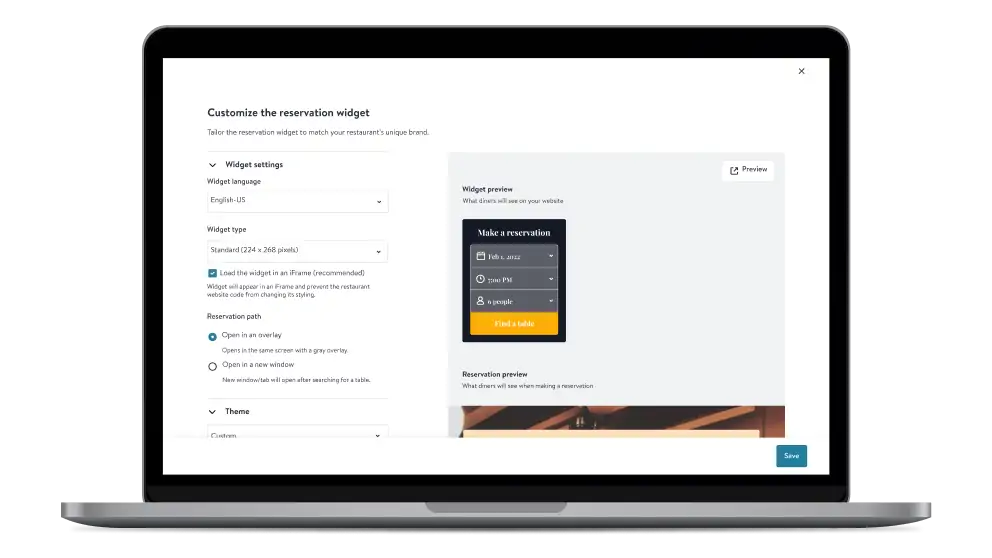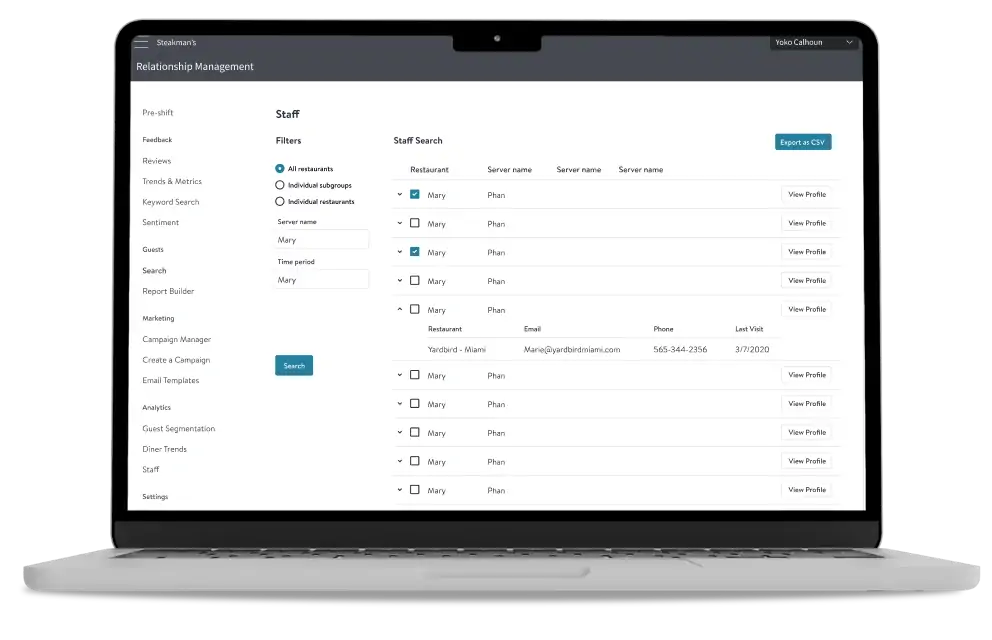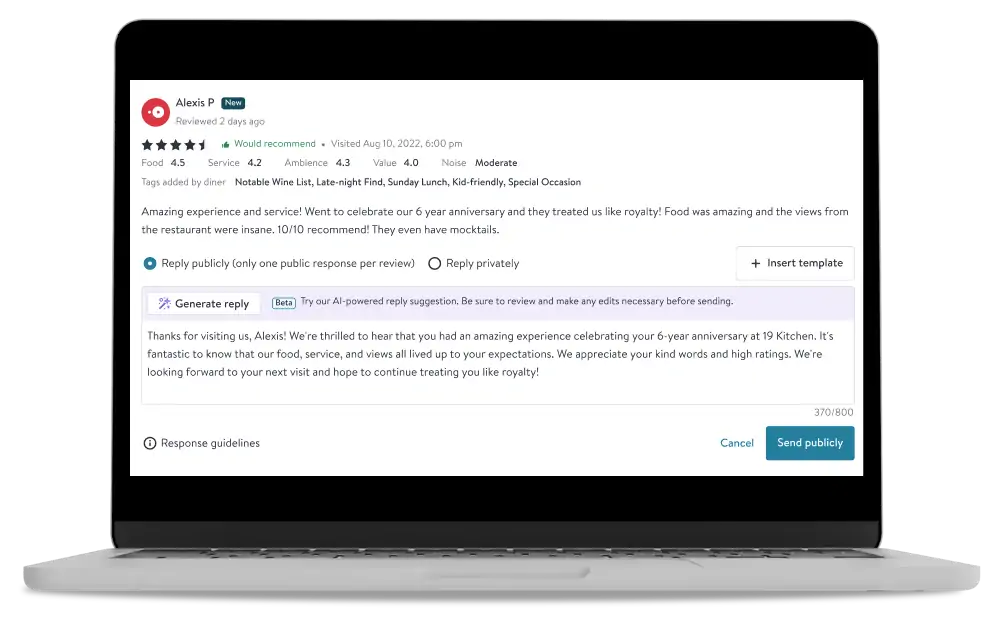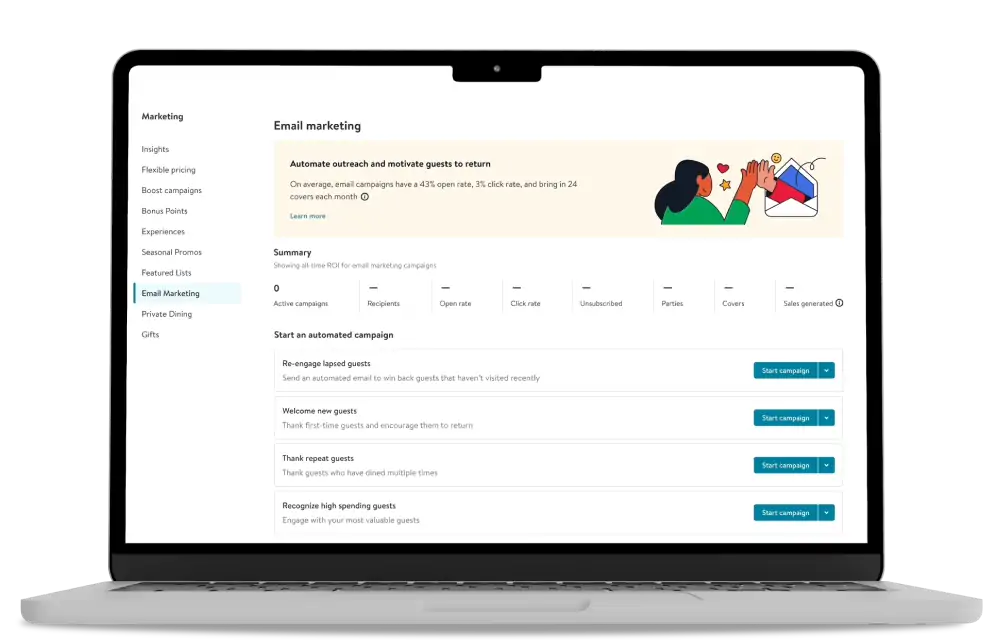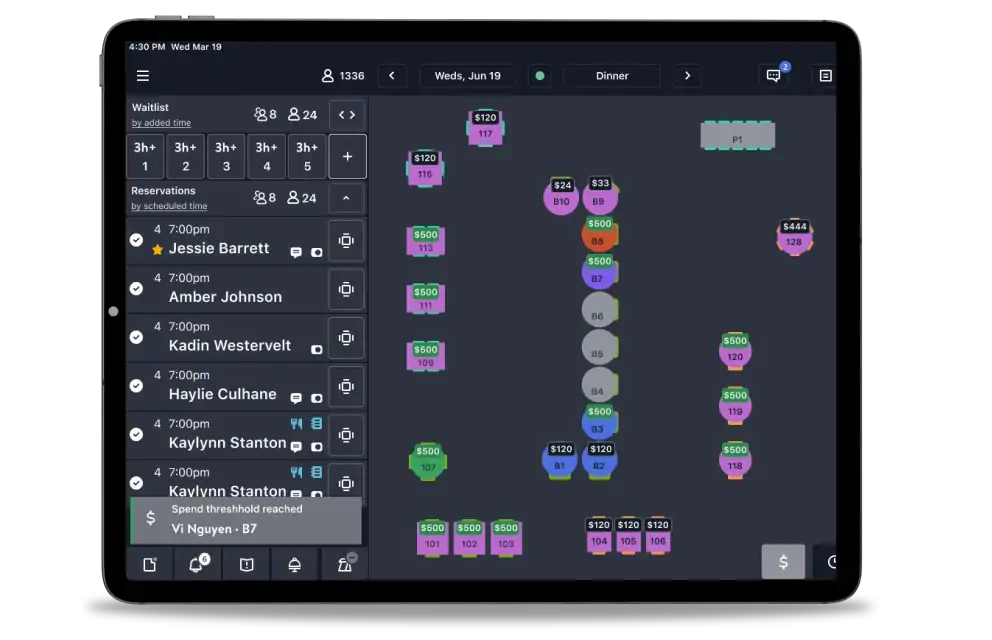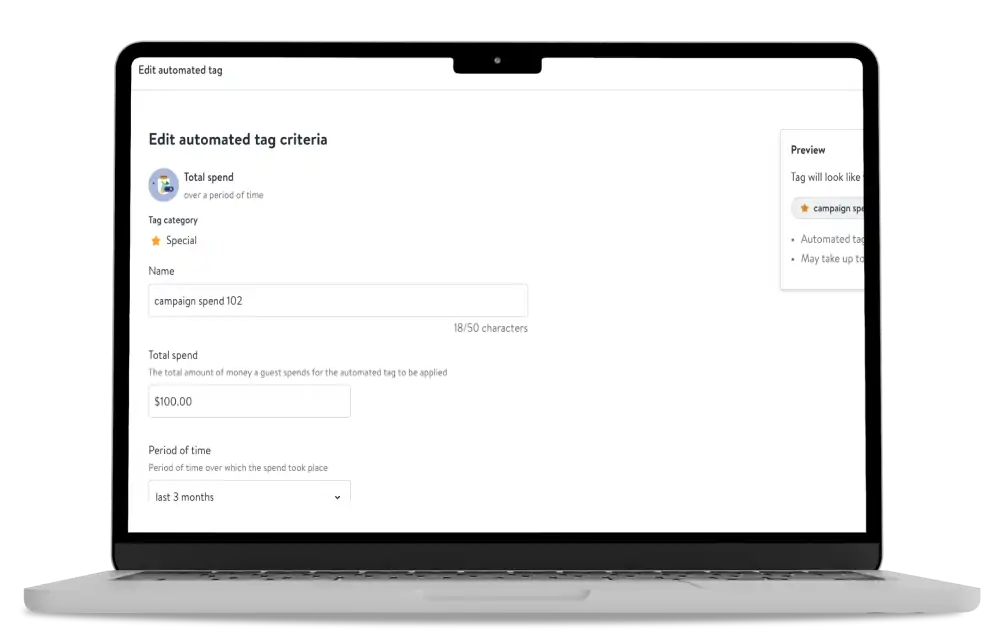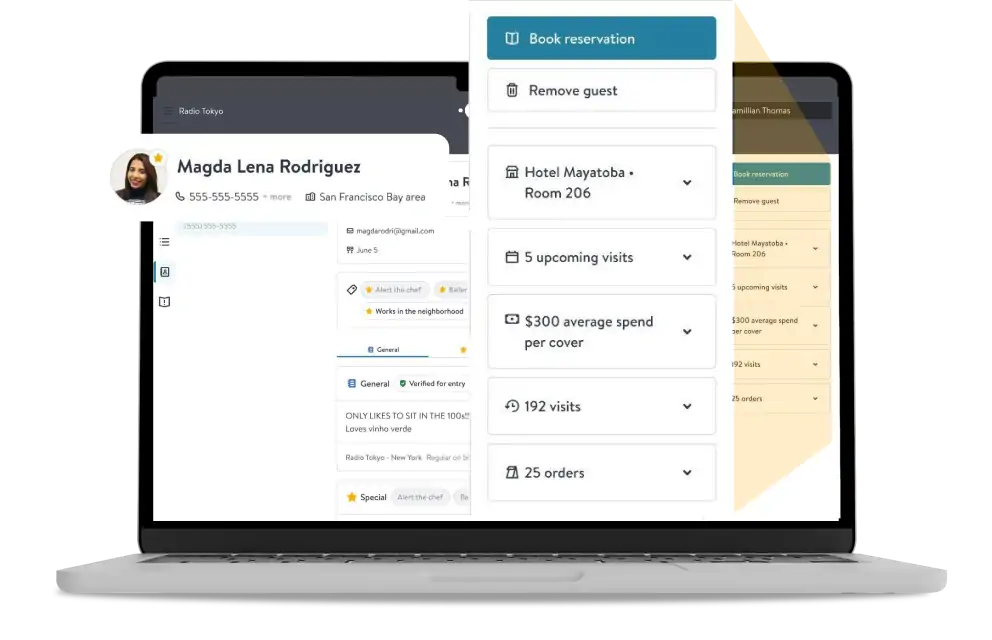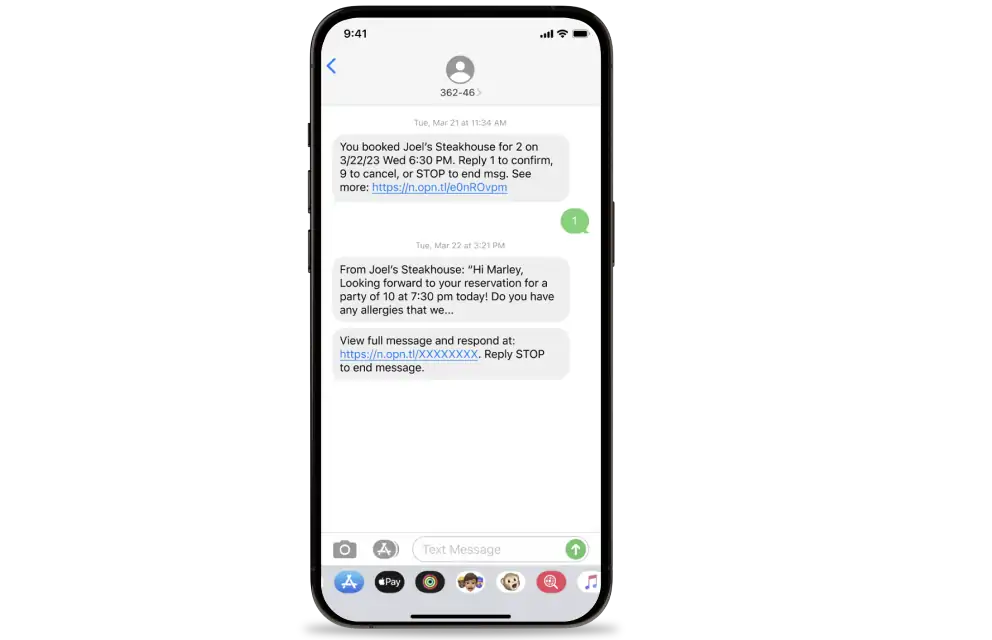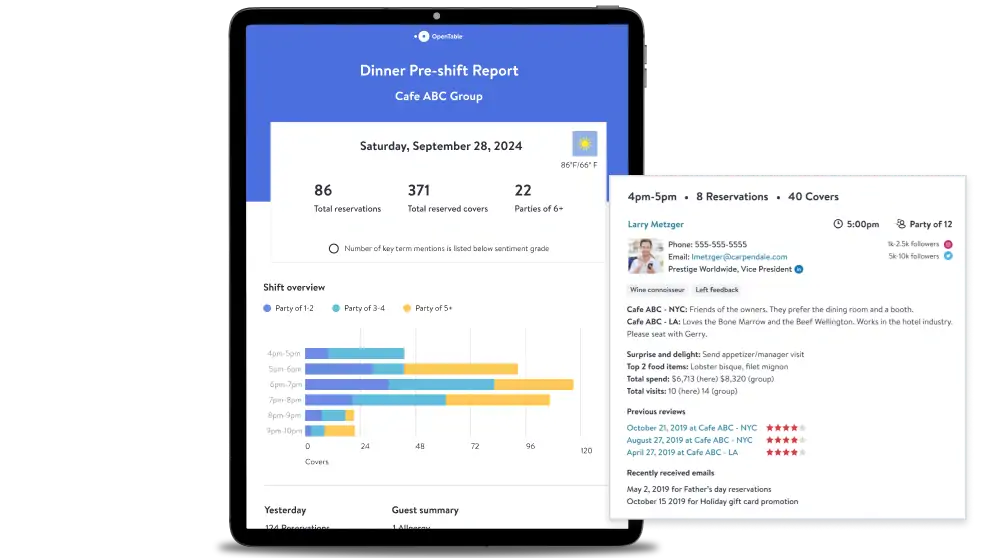- Support
- Take reservations
- Market your restaurant
- Run smoother shifts
- Sell events & experiences
- View all restaurant solutions
- Take reservations
- Market your restaurant
- Run smoother shifts
- Sell events & experiences
- View all restaurant solutions
Make guests feel like friends with data and insights
How a celeb-studded restaurant group personalizes hospitality across brand
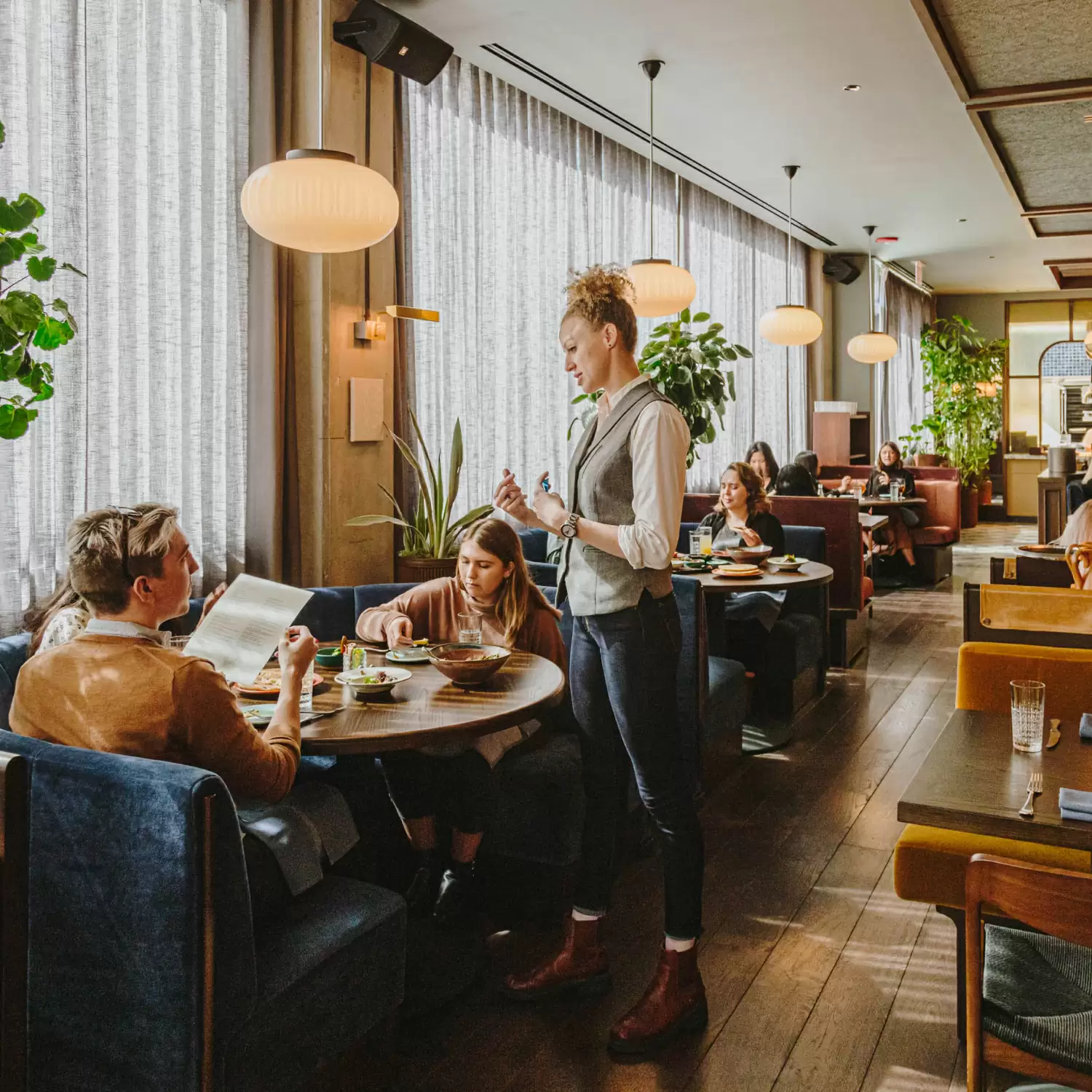
Make guests feel like friends with data and insights
How a celeb-studded restaurant group personalizes hospitality across brands

Fast facts
Restaurant name:
Boka GroupType of restaurant:
Restaurant groupLocations:
23 locations in Chicago and Los AngelesYear founded:
2002The restaurant industry is centered on taking care of people. But as eye contact has been replaced with touchscreens, restaurants are fighting to fulfill what diners crave most: personalized human interaction.
The emergence of technology is certainly not all bad. In fact, technology has helped the Boka Group make those human connections between restaurants and guests more powerful, even as the restaurant group expanded to 23 properties.
Larry Flam, former Operations Manager at Boka Group, pointed out an added complexity that came with their growth: “Now we have company-loyal diners, regulars from one Boka location coming to another location for the first time. This gives us the opportunity to approach that table in a completely different way because we know they understand the Boka way of doing things. So the guests are new in one sense, but really they are like an old friend.”
Boka came to OpenTable with the challenge to use guest data to create more personalized experiences across their group.
Making personalization scalable
The untapped opportunity resided in data for each individual guest. By connecting Boka’s POS systems with OpenTable profiles of past and future reservations, OpenTable created robust guest profiles for each diner at each Boka location.
A previously unknown guest could now be distinguished as Mark Smith, a first time diner at GT Fish & Oyster, but a group regular from GT Prime who dined three times in the last month, always orders the beef tenderloin paired with California Pinot Noir, prefers water with no lemon, left feedback via OpenTable 19 days ago, enjoys posting on Facebook from time to time, and has a lifetime spend of $3,637.
Applied to every guest across the entire group, the Boka staff was empowered to personalize experiences: “We train our servers to understand a guest’s likes and dislikes so that they can keep that in mind. If a guest is consistently ordering red wines, you’re not necessarily going to pitch them with a white wine. But if they’re ordering a lot of seafood, that goes out the door! Now, as a server, you might look at it from a different perspective like ‘Oh, this person typically orders Burgundys so maybe white wine from that region might be appropriate.’”
Fast facts
Restaurant name:
Boka GroupType of restaurant:
Restaurant groupLocations:
23 locations in Chicago and Los AngelesYear founded:
2002The restaurant industry is centered on taking care of people. But as eye contact has been replaced with touchscreens, restaurants are fighting to fulfill what diners crave most: personalized human interaction.
The emergence of technology is certainly not all bad. In fact, technology has helped the Boka Group make those human connections between restaurants and guests more powerful, even as the restaurant group expanded to 23 properties.
Larry Flam, former Operations Manager at Boka Group, pointed out an added complexity that came with their growth: “Now we have company-loyal diners, regulars from one Boka location coming to another location for the first time. This gives us the opportunity to approach that table in a completely different way because we know they understand the Boka way of doing things. So the guests are new in one sense, but really they are like an old friend.”
Boka came to OpenTable with the challenge to use guest data to create more personalized experiences across their group.
Making personalization scalable
The untapped opportunity resided in data for each individual guest. By connecting Boka’s POS systems with OpenTable profiles of past and future reservations, OpenTable created robust guest profiles for each diner at each Boka location.
A previously unknown guest could now be distinguished as Mark Smith, a first time diner at GT Fish & Oyster, but a group regular from GT Prime who dined three times in the last month, always orders the beef tenderloin paired with California Pinot Noir, prefers water with no lemon, left feedback via OpenTable 19 days ago, enjoys posting on Facebook from time to time, and has a lifetime spend of $3,637.
Applied to every guest across the entire group, the Boka staff was empowered to personalize experiences: “We train our servers to understand a guest’s likes and dislikes so that they can keep that in mind. If a guest is consistently ordering red wines, you’re not necessarily going to pitch them with a white wine. But if they’re ordering a lot of seafood, that goes out the door! Now, as a server, you might look at it from a different perspective like ‘Oh, this person typically orders Burgundys so maybe white wine from that region might be appropriate.’”

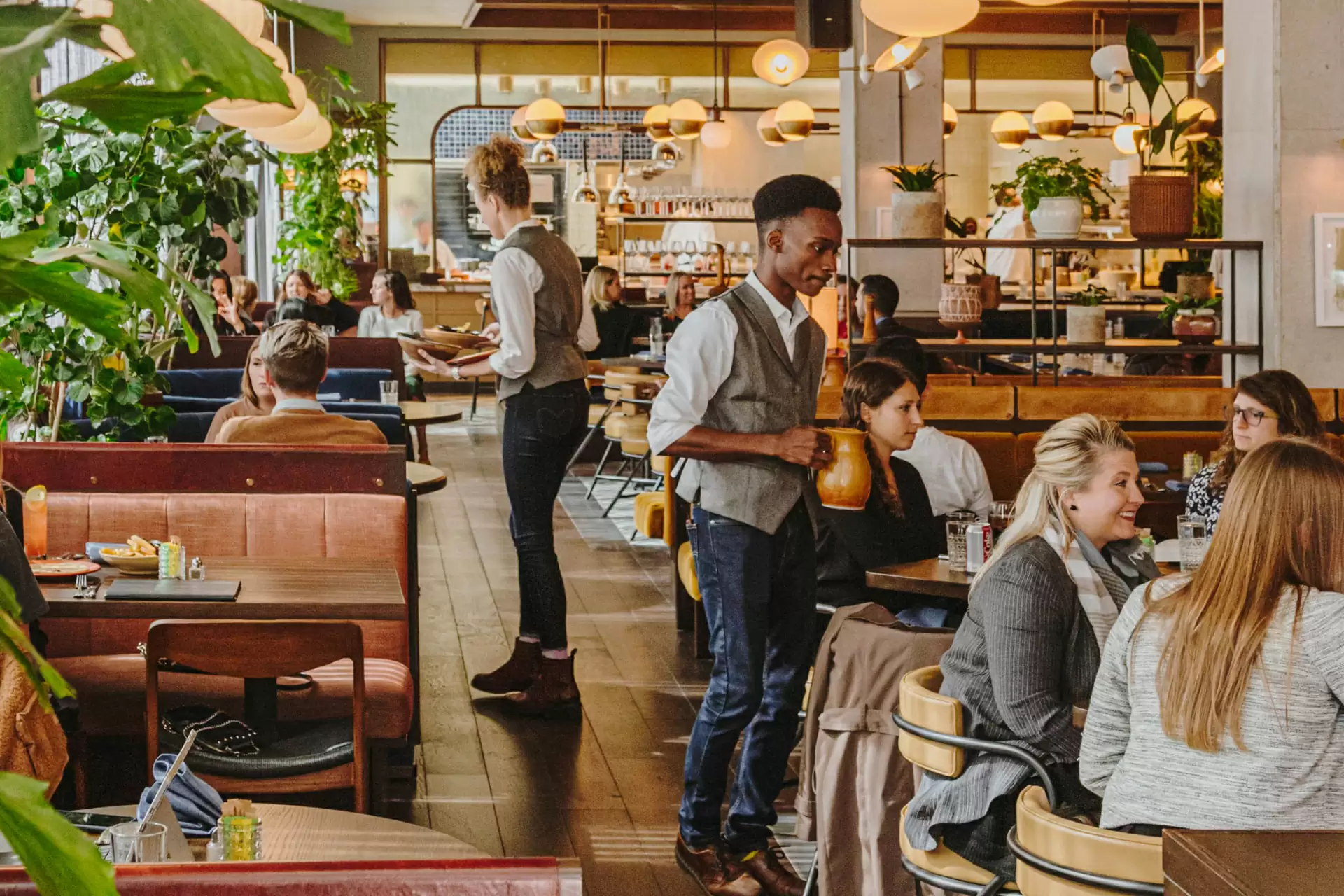
“Now we have company-loyal diners, regulars from one Boka location coming to another location for the first time.”
Larry Flam, Former Operations Manager
Boka Restaurant GroupTaking action on intel
To make this intel even more actionable, Boka leverages the pre-shift report to access personalized guest insights before every shift, so the service staff can offer the best hospitality possible.
From an operational perspective, Flam said the pre-shift report plays a crucial part in server success: “We are arming our servers with information so that they at least have a sense. Just because a guest has previously ordered the Cabernet doesn’t mean we are pitching that wine every time—that’s kind of the old-school way to serve your guests. Now we can consider our manager’s observations and combine them with the real time feedback our guests give us.”
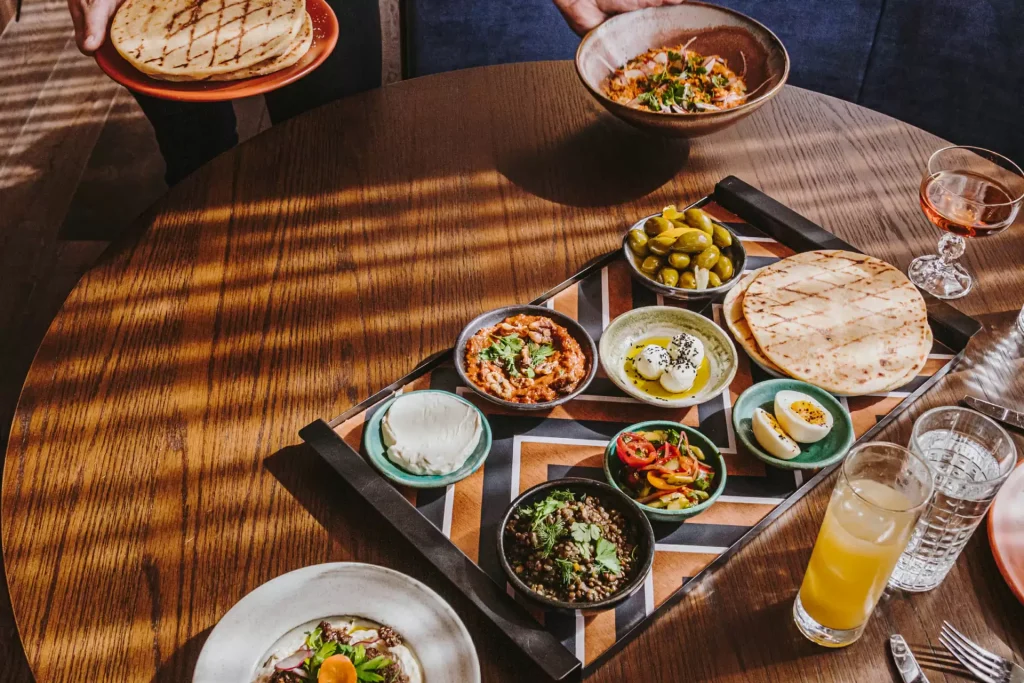
Taking action on intel
To make this intel even more actionable, Boka leverages the pre-shift report to access personalized guest insights before every shift, so the service staff can offer the best hospitality possible.
From an operational perspective, Flam said the pre-shift report plays a crucial part in server success: “We are arming our servers with information so that they at least have a sense. Just because a guest has previously ordered the Cabernet doesn’t mean we are pitching that wine every time—that’s kind of the old-school way to serve your guests. Now we can consider our manager’s observations and combine them with the real time feedback our guests give us.”

Let’s do this
SolutionsWhy OpenTableMoreGET OPENTABLE
Need help deciding which option is best for you? Give us a call at
Join us onCopyright © 2024 OpenTable, Inc. 1 Montgomery St Ste 500, San Francisco CA 94104 – All rights reserved.OpenTable is part of Booking Holdings Inc., the world leader in online travel & related services.